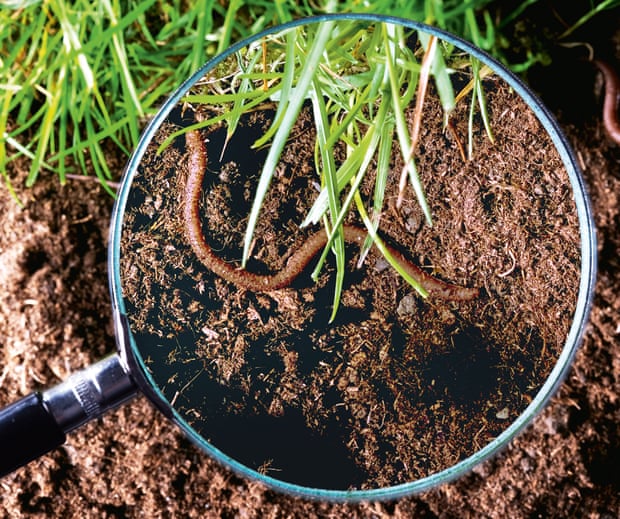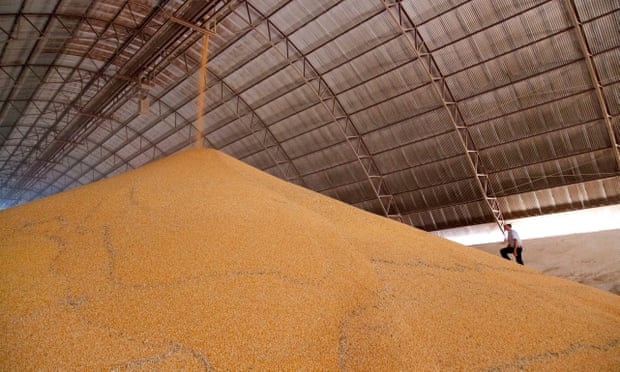Soil (II) 移花接木2022-05-17 04:14:45
But none of the above captures the true wonder of soil. Let’s start with something that flips our understanding of how we survive. Plants release into the soil between 11% and 40% of all the sugars they make through photosynthesis. They don’t leak them accidentally. They deliberately pump them into the ground. Stranger still, before releasing them, they turn some of these sugars into compounds of tremendous complexity.
Making such chemicals requires energy and resources, so this looks like pouring money down the drain. Why do they do it? The answer unlocks the gate to a secret garden.
These complex chemicals are pumped into the zone immediately surrounding the plant’s roots, which is called the rhizosphere. They are released to create and manage its relationships.
Soil is full of bacteria. Its earthy scent is the smell of the compounds they produce. In most corners, most of the time, they wait, in suspended animation, for the messages that will wake them. These messages are the chemicals the plant releases. They are so complex because the plant seeks not to alert bacteria in general, but the particular bacteria that promote its growth. Plants use a sophisticated chemical language that only the microbes to whom they wish to speak can understand.
When a plant root pushes into a lump of soil and starts releasing its messages, it triggers an explosion of activity. The bacteria responding to its call consume the sugars the plant feeds them and proliferate to form some of the densest microbial communities on Earth. There can be a billion bacteria in a single gram of the rhizosphere; they unlock the nutrients on which the plant depends and produce growth hormones and other chemicals that help it grow. The plant’s vocabulary changes from place to place and time to time, depending on what it needs. If it’s starved of certain nutrients, or the soil is too dry or salty, it calls out to the bacteria species that can help.

Soil is the most neglected of major ecosystems
Take a step back and you will see something that transforms our understanding of life on Earth. The rhizosphere lies outside the plant, but it functions as if it were part of the whole. It could be seen as the plant’s external gut. The similarities between the rhizosphere and the human gut, where bacteria also live in astonishing numbers, are uncanny. In both systems, microbes break down organic material into the simpler compounds the plant or person can absorb. Though there are more than 1,000 phyla (major groups) of bacteria, the same four dominate both the rhizosphere and the guts of mammals.
Just as human breast milk contains sugars called oligosaccharides, whose purpose is to feed not the baby but the bacteria in the baby’s gut, young plants release large quantities of sucrose into the soil, to feed and develop their new microbiomes. Just as the bacteria that live in our guts outcompete and attack invading pathogens, the friendly microbes in the rhizosphere create a defensive ring around the root. Just as bacteria in the colon educate our immune cells and send chemical messages that trigger our body’s defensive systems, the plant’s immune system is trained and primed by bacteria in the rhizosphere.
Soil might not be as beautiful to the eye as a rainforest or a coral reef, but once you begin to understand it, it is as beautiful to the mind. Upon this understanding our survival might hang.
We face what could be the greatest predicament humankind has ever encountered: feeding the world without devouring the planet. Already, farming is the world’s greatest cause of habitat destruction, the greatest cause of the global loss of wildlife and the greatest cause of the global extinction crisis. It’s responsible for about 80% of the deforestation that’s happened this century. Of 28,000 species known to be at imminent risk of extinction, 24,000 are threatened by farming. Only 29% of the weight of birds on Earth consists of wild species: the rest is poultry. Just 4% of the world’s mammals, by weight, are wild; humans account for 36%, and livestock for the remaining 60%.
Unless something changes, all this is likely to get worse – much worse. In principle, there is plenty of food, even for a rising population. But roughly half the calories farmers grow are now fed to livestock, and the demand for animal products is rising fast. Without a radical change in the way we eat, by 2050 the world will need to grow around 50% more grain. How could we do it without wiping out much of the rest of life on Earth?

Just as farming is trashing crucial Earth systems, their destruction threatens our food supply. Sustaining even current levels of production might prove impossible. Climate breakdown is likely, on the whole, to make wet places wetter and dry places drier. One more degree of heating, one estimate suggests, would parch 32% of the world’s land surface. By the middle of this century, severe droughts could simultaneously affect an arc from Portugal to Pakistan. And this is before we consider the rising economic fragility of the global food system, or geopolitical pressures, such as the current war in Ukraine, that might threaten 30% of the world’s wheat exports.
It’s not just the quantity of production that’s at risk, but also its quality. A combination of higher temperatures and higher concentrations of CO2 reduces the level of minerals, protein and B vitamins that crops contain. Already, zinc deficiency alone afflicts more than a billion people. Though we seldom discuss it, one paper describes the falling concentrations of nutrients as “existential threats”.